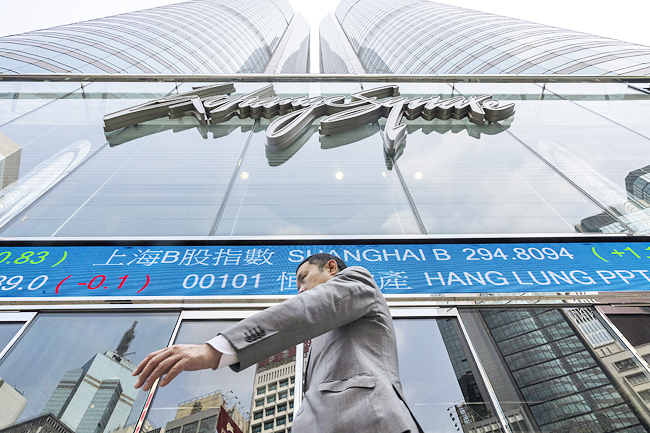TOKYO (AP) – Asian shares were mostly higher yesterday, as markets watched for key inflation data likely to influence the Federal Reserve’s stance on interest rates.
Japan’s benchmark Nikkei 225 rose 0.6 per cent in early trading to 28,096.74. Australia’s S&P/ASX 200 added 0.6 per cent to 7,352.10. South Korea’s Kospi edged less than one point lower, to 2,547.27.
Hong Kong’s Hang Seng index lost 0.7 per cent to 20,345.23 and the Shanghai Composite index added 0.3 per cent to 3,322.39.
“Broader markets remain laser-focussed on this week’s critical inflation data as market participants attempt to tease out the state of the economy and the course the Fed might take from here,” managing partner at SPI Asset Management Stephen Innes said in a report.
On Wall Street, the S&P 500 had its smallest one-day move in more than a year, slipping 0.17 points, or less than 0.1 per cent, to 4,108.94. Most of the stocks in the index rose, as did the Dow Jones Industrial Average, which gained 0.3 per cent to 33,684.79. The Nasdaq composite slipped 0.4 per cent to 12,031.88.
The biggest immediate question for Wall Street has been whether the Federal Reserve will keep hiking interest rates in its attempt to get high inflation under control. It’s already raised rates at a furious pace over the last year, enough to slow some areas of the economy and for strains to appear in the banking system.
Economists expect yesterday’s report on consumer inflation to show it slowed to 5.2 per cent in March from six per cent in February. That’s continued progress since inflation peaked last summer, but still well above the Fed’s target.

A higher reading than expected would likely raise expectations the Fed will raise rates by another quarter of a percentage point at its next meeting in May. Higher rates can undercut inflation, but in slowing the economy they raise the risk of a recession and hurt prices for stocks and other investments.
Bond traders have been jittery over the Fed possibly going too far on rates and then having to cut them as soon as this summer in order to prop up the economy.
The stock market has remained more resilient, helped by hopes the Fed could thread the needle and raise rates just enough to stifle inflation without causing a severe downturn.
“While navigating the fickle market narrative isn’t easy, it helps that rates are pricing in a more pessimistic view compared to equities, which are leaning toward a more optimistic outlook,” said chief investment officer at UBS Global Wealth Management Mark Haefele.
Still-high inflation is one of the reasons analysts expect this upcoming earnings reporting season to show the worst drop since the depths of the pandemic in 2020. A bunch of banks will help kick off the earnings reporting season when they tell investors tomorrow how much they earned during the first three months of the year.
Investors will get updates on what CEOs say about current and upcoming conditions. One fear is that banks in particular could pull back on their lending following all the turmoil in their sector, caused in part by the past year’s swift leap in interest rates.
If they do cut off lending to businesses, that could further slow the economy and raise the risk of a recession.



















































